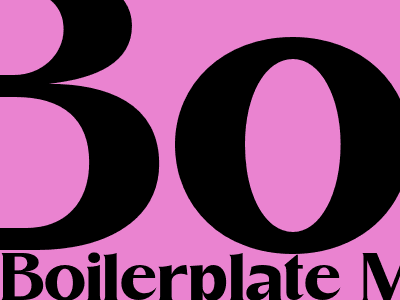Boilerplate: The Language of Business and Law
What is Boilerplate?
Boilerplate is a term used to describe standardized text that is included in legal and business documents. It is often used to save time and effort, as it can be easily copied and pasted into new documents. Boilerplate can include a variety of information, such as standard terms and conditions, disclaimers, and warranties.
Why is Boilerplate Used?
Boilerplate is used for a number of reasons. First, it can help to ensure that all of the necessary information is included in a document. Second, it can help to make documents more consistent and easier to read. Third, it can help to protect businesses from legal liability.
What are the Different Types of Boilerplate?
There are many different types of boilerplate. Some of the most common include:
- Standard terms and conditions: These are the terms and conditions that govern the use of a product or service. They typically include information about the price, payment terms, and warranty.
- Disclaimers: These are statements that limit the liability of a business or individual. They typically state that the business or individual is not responsible for any damages or losses that may occur as a result of using the product or service.
- Warranties: These are promises that a product or service will meet certain standards. They typically include information about the length of the warranty and the remedies that are available if the product or service does not meet the standards.
How Can I Use Boilerplate?
Boilerplate can be used in a variety of ways. It can be included in contracts, agreements, policies, and other legal documents. It can also be used on websites, in marketing materials, and in other business communications.
What are the Benefits of Using Boilerplate?
There are many benefits to using boilerplate. Some of the most common include:
- Saves time and effort: Boilerplate can help to save time and effort by eliminating the need to rewrite the same information over and over again.
- Ensures consistency: Boilerplate can help to ensure that all of the necessary information is included in a document and that the document is consistent with other similar documents.
- Protects from legal liability: Boilerplate can help to protect businesses from legal liability by limiting their liability for damages or losses.
What are the Risks of Using Boilerplate?
There are also some risks associated with using boilerplate. Some of the most common include:
- May not be appropriate for all situations: Boilerplate may not be appropriate for all situations. It is important to carefully consider the specific circumstances before using boilerplate.
- May be difficult to understand: Boilerplate can be difficult to understand, especially for non-lawyers. It is important to read boilerplate carefully and to make sure that you understand what it means before you sign a document that includes boilerplate.
- May not be legally enforceable: Boilerplate may not be legally enforceable in all cases. It is important to consult with an attorney to make sure that the boilerplate you are using is legally enforceable.
Conclusion
Boilerplate is a valuable tool that can be used to save time and effort, ensure consistency, and protect from legal liability. However, it is important to use boilerplate carefully and to make sure that it is appropriate for the specific circumstances.

Comments